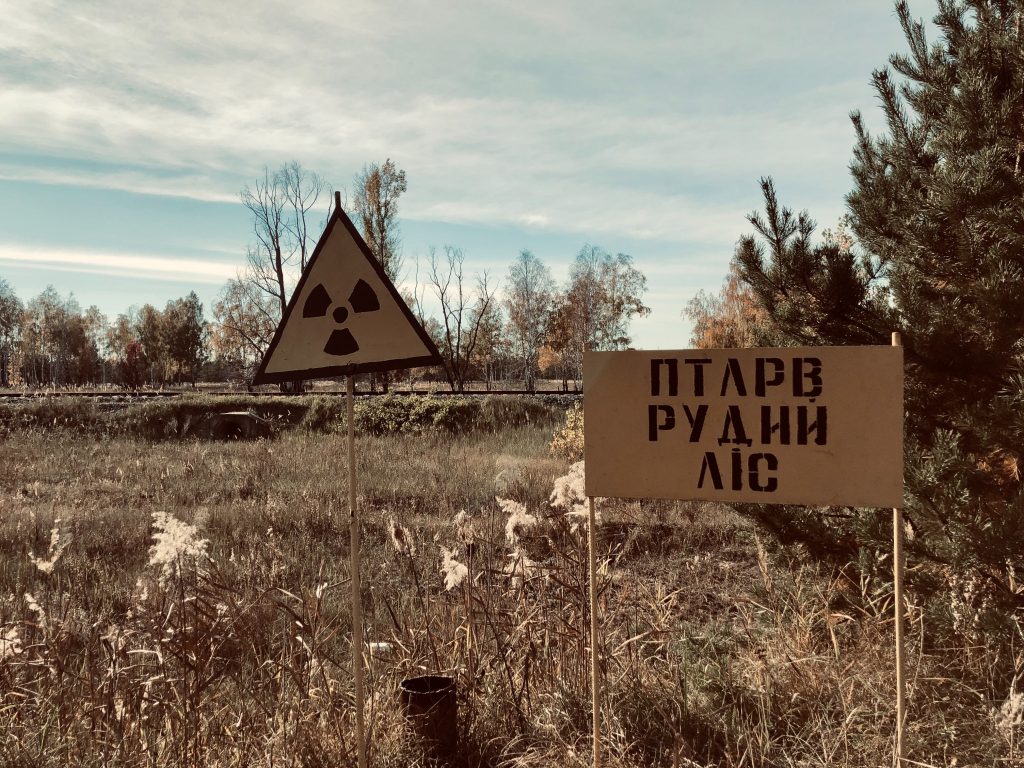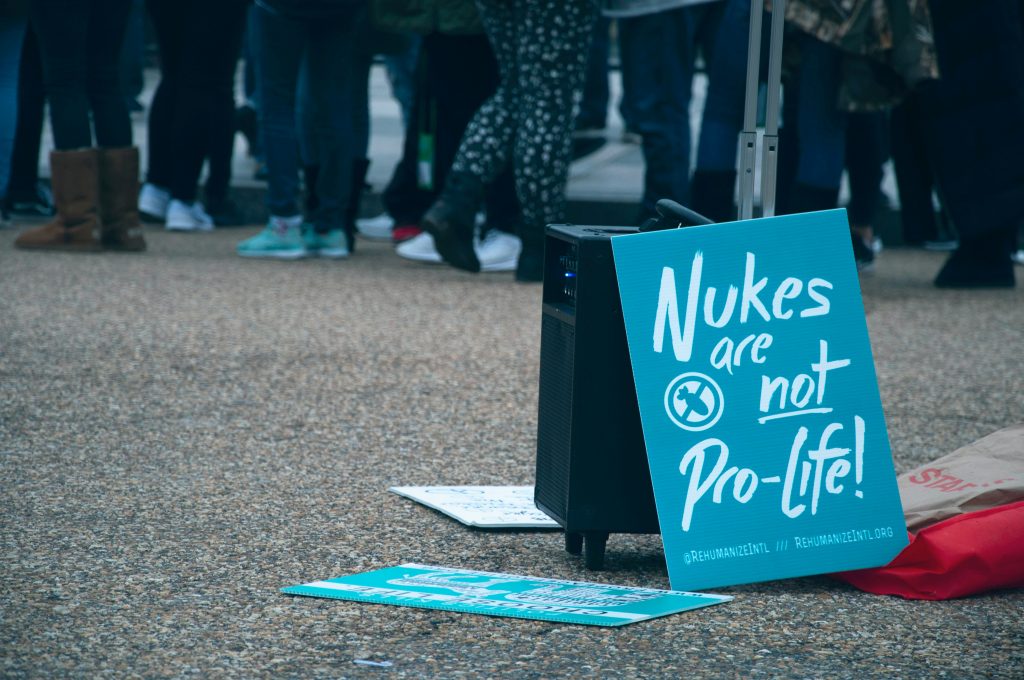Nuclear energy, nuclear power, nuclear reactors? What is the first thing that comes to your mind when you hear (or in this case, read) these words? You might think of controversial political issues, such as nuclear weapons, or maybe infamous nuclear disasters, such as Chernobyl incident in 1986, or the more recent Fukushima Daiichi Accident in 2011. There is so much going on with regards to nuclear reactors, especially when related to their risks. Moreover, what are the environmental considerations and how does it help alleviate climate change? Will it help boost the economy? Let’s look into what’s been discovered regarding nuclear power and climate change.
Considering nuclear power as a solution for climate change

Firstly, there is a lot of debate surrounding the possibilities that nuclear power can be beneficial to us. Perhaps it can be. Of course, assuming that no one thinks about going rogue and weaponising the technology.
Nuclear power is said to be relatively “clean”. In conjunction with renewable energy and carbon capture and storage processes, the carbon dioxide emissions will be relatively small. According to Socolow and Glaser, the carbon dioxide that is emitted can be as little as one-tenth of the carbon dioxide emitted collectively at present coal plants.
However, we must keep in mind that carbon dioxide is not the only greenhouse gas that is blanketing our planet. Methane is another major greenhouse gas that is on our bad list. In fact, we need to somehow tune down the greenhouse gas levels back to concentrations, in which our global temperature would not significantly fluctuate. In addition, Poneman highlighted this in his 2019 article, by stating that: “The world would not come anywhere near the goal of limiting temperature rise to 2 degrees Celsius” despite all the nations reaching 100% of the reductions that they pledged in the Paris agreement (Poneman, 2019) if nuclear energy is involved. Moreover, we know that temperatures climbing higher than 2 degrees Celsius will have dreaded and irreversible effects on our coral reefs, forests, and ice caps.
A more recent study by Climate Action Tracker also found that based on the updated pledges and targets by the governments (as of September 2020) the world is forecasted to “limit warming to about 2.6°C above pre-industrial levels,”, which reflects a 66% chance of limiting our emissions below 2.8 degrees Celsius (CAT, 2020)
Secondly, nuclear reactors are not waste-free. Nuclear waste is radioactive, a potential carcinogen (cancer-causing) that we need to protect ourselves from. Although the waste is usually disposed of nearby the plant or in the plant area, the accumulated nuclear waste can leak, which can seep into our groundwaters and pollute our water systems, wildlife, and soil systems. Would we be willing to accept this risk? If so, can it be prevented much better with more research?
What does the public say regarding nuclear power?

A British study conducted by Bickerstaff in 2008 showed that only 6.3% of the surveyed individuals perceived nuclear power as an option for combatting climate change. However, the rest had shown a “more reluctant, uncomfortable acceptance” of nuclear energy and that “the trade-off was the lesser of two evils.”
In addition, Australians are less accepting of nuclear power in general. An Australian survey conducted in 2012 on the public’s opinion about nuclear power showed 75.9% of those surveyed supported renewable energy over nuclear power. In contrast, 34.4% of the public supported nuclear power investments only if climate change effects were mitigated (Bird et al., 2012). The survey potentially captured most of the negative response towards nuclear energy due to the recent Fukushima nuclear disaster, which cost Japan $200 billion during that time.
Furthermore, a 2019 survey in the United States has found an even divergence in public opinion about nuclear energy. Of the adults surveyed, 49% supported implementing nuclear power, but the other 49% were dissentient on the energy type. Despite this result, as of August 2020, the nation spent $319 million on new nuclear plant designs and the proliferation-resistant fuel cycle in nuclear research and design as well as an additional $350 million for the clean-up of nuclear energy and research sites. All this money was provided towards nuclear energy, which we could have used to mitigate issues addressed by the United Nations’ Sustainable Development Goals.
Final Thoughts
In summary, nuclear technology is a crucial area of research, as there is so much potential in providing clean energy. Furthermore, a full-scale nuclear plant can produce large amounts of energy to power (almost!) an entire city. However, this form of technology is very fragile, with dire consequences. In the wrong hands, nuclear technology is beyond destructive. In general, the topic of nuclear energy is controversial, no matter where you are in the world, highlighting the lack of trust and knowledge available regarding nuclear power.
Where do you stand on nuclear technology? Should we invest in it? Leave your thoughts in the comments below.
Finally, are you considering changing to a more sustainable lifestyle? You can get some of our top tips here. Finally, start your sustainable journey by joining us at the THRIVE Project, where we can create a THRIVEable planet together.
References:
Bickerstaff, L. (2008). Reframing nuclear power in the UK energy debate: Nuclear power, climate change mitigation and radioactive waste. Public Understanding of Science (Bristol, England), vol. 17, no. 2, pp. 145–169, doi: 10.1177/0963662506066719.
Bird, D. & Haynes, K. & Honert, R. & Mcaneney, J. & Poortinga, W. (2014). Nuclear Power in Australia: A Comparative Analysis of Public Opinion Regarding Climate Change and the Fukushima Disaster. Energy Policy. 65. 644–653. 10.1016/j.enpol.2013.09.047.
Climate Action Tracker (2020). Temperature. Climate Action Tracker. Available at: https://climateactiontracker.org/global/temperatures/
Lee, B, and Rushton, M. (2020). The future of nuclear: power stations could make hydrogen, heat homes and decarbonise industry. The Conversation. Available at: https://theconversation.com/the-future-of-nuclear-power-stations-could-make-hydrogen-heat-homes-and-decarbonise-industry-148445
Reinhart, RJ. (2019). 40 years after three mile island, Americans split on nuclear power. Gallup. Available at: https://news.gallup.com/poll/248048/years-three-mile-island-americans-split-nuclear-power.aspx
Socolow, R. H., & Glaser, A. (2009). Nuclear energy & climate change. Daedalus. Available at: https://www.amacad.org/publication/nuclear-energy-climate-change
Wilson, J. (2020). There is still no place for nuclear energy in Australia. Sydney Morning Herald. Available at: https://www.smh.com.au/national/there-is-still-no-place-for-nuclear-energy-in-australia-20200217-p541of.html
World Nuclear Association (2020). United States Nuclear Power Policy. World Nuclear. Available at: https://world-nuclear.org/information-library/country-profiles/countries-t-z/usa-nuclear-power-policy.aspx























